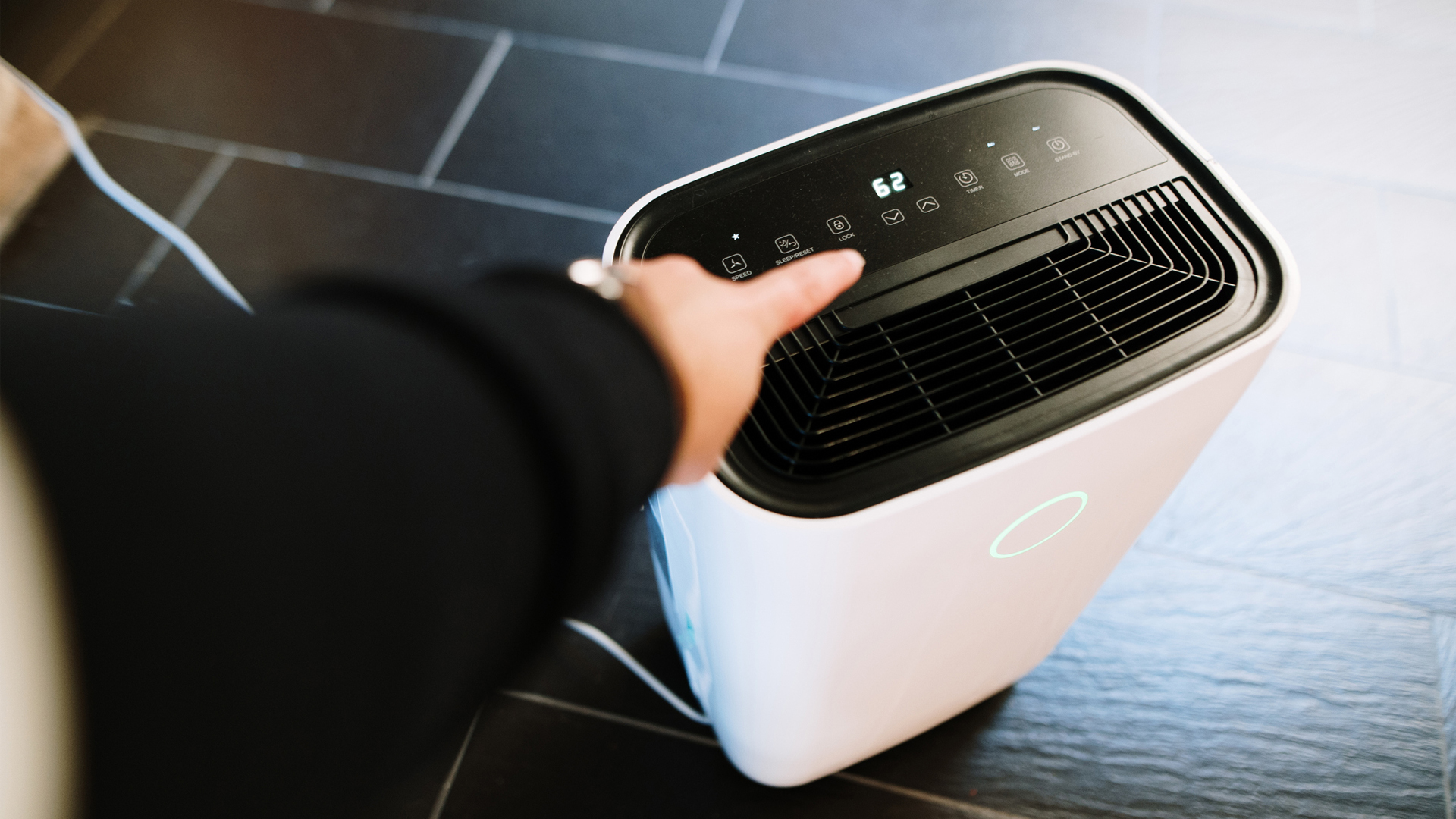
If you struggle with uncomfortable respiratory symptoms, you may be wondering what the difference is between a dehumidifier and an air purifier. Both can be helpful in controlling troublesome symptoms of conditions such as allergies and asthma, but how do they work? And is one better than another for certain conditions?
In short, both air purifiers and dehumidifiers can enhance the air quality in your home, but the way each one does so is very different. This also means they have different impacts on your respiratory system, Weining Wang, an associate professor of indoor air quality and aerosol technology at Virginia Commonwealth University, told Live Science. "Dehumidifiers are essential tools to lower the relative humidity, whereas air purifiers capture and remove airborne particles," he said.
Relative humidity (RH) measures how close the air at a specific temperature is to being saturated with water vapor. In other words, it describes the amount of moisture in the air relative to the temperature of the air. The temperature of the air matters because warm air can hold more water vapor than cold air, according to the U.S. National Weather Service. Airborne particles, on the other hand, are common pollutants that travel by air, including dust, pollen, pet dander and smoke.
Dehumidifiers work by extracting moist, warm air from the environment and cycling cool, drier air back into your home. They can help to control the humidity in a room, which is why they can be particularly useful if you live in a damp environment that causes issues like condensation. "Dehumidifiers can also reduce mold growth," Wang said.
In contrast, air purifiers do not change the humidity levels of a room and are instead designed to filter indoor airborne particles out of the air and cycle clean, pollutant-free air back into your home. This means that, at least in theory, they can aid those with respiratory conditions by removing allergens from the air before they can be inhaled. For example, they can remove mold spores, Wang said, and mold spores — tiny seeds that mold releases into the air in order to grow and reproduce — can trigger allergy symptoms in some people.
- Read more: How well do air purifiers work?
The two main issues that both dehumidifiers and air purifiers can help with are allergies and asthma, which are often related. So, how do dehumidifiers help with allergies? And are dehumidifiers good for asthma?
"Dehumidifiers can help improve the indoor environment in patients with allergen-sensitive asthma," Dr. Angela Hogan, the chair of the American College of Allergy, Asthma and Immunology Asthma Committee, told Live Science by email. "Excessive moisture can boost the growth of mold and dust mites, and those exposures can lead to chronic airway inflammation in susceptible people. [This is why] most recommend maintaining indoor humidity between 30% and 50% to minimize asthma triggers," she said. That is because air that is too dry can also irritate the respiratory system and thus aggravate asthma symptoms.
There is also some evidence that high humidity, if combined with the traffic-related air pollutant nitrogen dioxide (NO2), can exacerbate the symptoms of allergic asthma in mice, according to a study published July 2024 in the journal Environmental Pollution. However, this study was done on animals and more evidence needs to be collected to say definitively whether a low-humidity environment can help with this condition in humans.
The evidence supporting the idea that air purifiers help with allergies and also help with asthma appears to be more robust. For example, a study published Sep. 2021 in Allergologia et Immunopathologia (a Spanish medical journal) showed a reduction in dust mite allergens when an air purifier with a HEPA filter was used.
HEPA filters are designed to remove at least 99.97% of airborne particles that are 0.3 microns or smaller, meaning they can trap some of the smallest allergens like mold spores and pet dander. They are a common feature in appliances these days, and most of the best air purifiers are equipped with HEPA filters.
However, we still need more evidence to understand exactly how air filtration can reduce allergy symptoms, according to a meta-analysis published Mar. 2024 in the journal Indoor Air. Studies suggest that air purifiers can help ease some of the symptoms of hay fever, such as runny nose, sneezing and watery eyes, but they may not be as effective when it comes to improving lung function, boosting the quality of life or reducing the need for allergy medications, the review authors said.
To sum up, neither air purifiers nor dehumidifiers have been shown to be 100% effective at improving our respiratory health, but they can both help us breathe more easily in our homes — albeit they do so in different ways.
This article is for informational purposes only and is not meant to offer medical advice.







